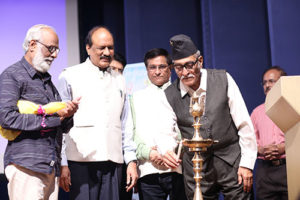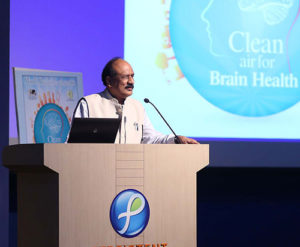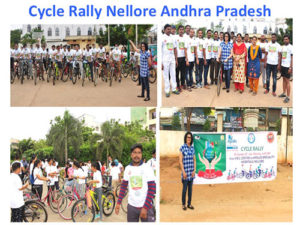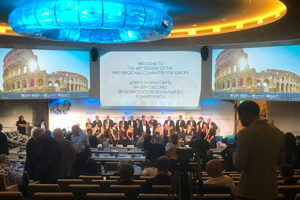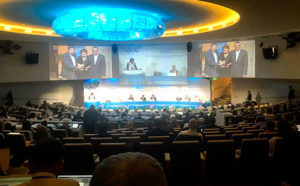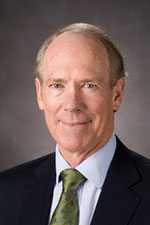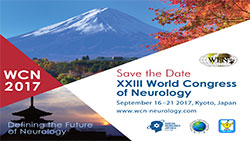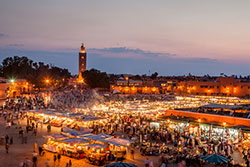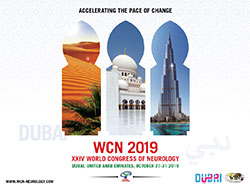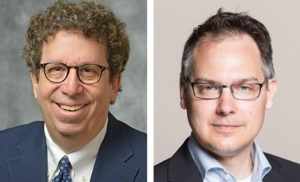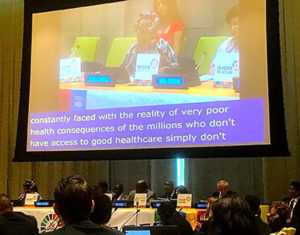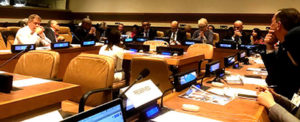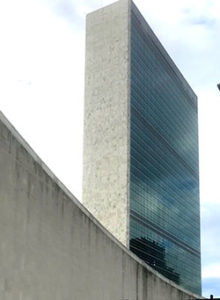By Claudia M. Guío-Sánchez, MD
Photo by Juana Rubio
“The problem of neurology is to understand man himself.” Wilder Penfield.
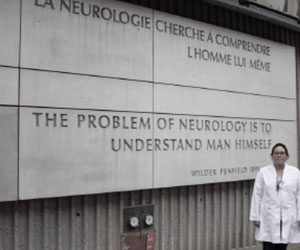
Caludia M. Guio-Sanchez, MD
This quote is the famous inscription I found the first time I entered the Montreal Neurological Institute and Hospital (MNI), better known as “The Neuro”; four weeks later, I understood its meaning in a deeper way.
I am a young neurologist from Colombia who graduated three years ago. Since before my training in neurology, I have always had a genuine interest in patients with demyelinating diseases. Canada is a prevalent country with thousands of multiple sclerosis (MS) cases per year, in contrast to Colombia, which does not have a prevalent number of MS cases. I am currently working on the multiple sclerosis program at the Hospital Universitario Nacional in Bogota, with almost 400 patients to date. That is why I had the desire to see how MS clinics work in countries like Canada, with the firm purpose of improving my knowledge for patients with MS in my country.
When my professor, Dr. Gustavo Patino, told me about the opportunity to come to MNI through the World Federation of Neurology (WFN) and the Canadian Neurological Society department visit program, my first thought was about the possibility to meet and exchange experiences with McGill University and the MNI MS clinic.
I therefore applied to this wonderful program with a special request to enjoy my visit in the MS clinic, and I had a positive response from Dr. Anne-Louise Lafontaine and Dr. Guy Rouleau, who allowed me to spend the entire month improving my skills in the MS field under the tutoring of Dr. Paul Giacomini.
My activities in the MNI MS clinic were:
- Attending the MS clinic with the different specialists, Dr. Yves Lapierre, Dr. Alexander Saveriano, and Dr. Paul Giacomini, discussing the different cases coming to the clinic every day and covering a wide range of clinical aspects and MS treatment strategies.
- Learning about the Canadian health system and the different guidelines of diagnosis and treatment of MS.
- Meeting and understanding the need to have a multidisciplinary structure in the MS clinic, sharing experiences in the special care of these patients with MS nurses Vanessa Spyropoulos and Kathleen Savoy.
- Attending the grand rounds of the MNI every Wednesday with the opportunity to share experiences with other neurologists and residents of the MNI staff.
My experience in the MNI MS clinic was great and allowed me to improve my academic, clinical, and social skills. Another aspect I learned in my stay at the MNI is the importance of the interaction of health care and research, which are closely integrated and provide mutual benefits. I strongly believe this is a key learning point for a middle-income country like Colombia.
The advantage of having done my visit in Montreal was meeting a lot of interesting people with different cultural backgrounds and nationalities, from the patients to the doctors and the rest of the staff; the cultural exchange for me was exceptional.
The MNI is a great place to perceive in a deep way how neurology is a powerful tool to understand the human being in all its dimensions, and the MS clinic taught me about the need to create a multidisciplinary center to support these complex patients in my country and encourage more study collaborations to increase research.
I am grateful for the time I spent with McGill University and the MNI MS clinic team: Dr. Lapierre, Dr. Saveriano, Dr. Giacomini, Vanessa, Kathleen, Maria, and Rose; every member of the team was friendly and open to teach me all the time.
Dr. Paul Giacomini was a great mentor and inspirational figure for me. I want to thank him especially for helping me to confirm my desire of pursuing my career in MS. I understood that despite working in a country with low MS prevalence, I had to keep the firm conviction of providing a more comprehensive care with better quality to patients with this disease in Colombia.
Furthermore, I was delighted to see how the women were encouraged to develop their careers in fields like demyelinating disorders. I felt that in the MNI the support from their male colleagues was strong and empowering. I think this is another point to keep in mind to improve in my country with its huge gender inequality.
I would also like to thank Carmen, Andy, and Angela, the administration staff of the MNI, for all the arrangements during my visit. Thank you to the WFN and the Canadian Neurological Society for this scholarship; I hope more people from South America will be motivated to apply to this outstanding experience.
Finally, I would like to express my gratitude to my hospitals in Colombia, Hospital Universitario Mayor-Méderi and Universitario Nacional, with special thanks to Dr. Ernesto Ojeda and Simón Cardenas for supporting me during my absence. •
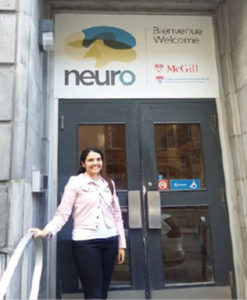
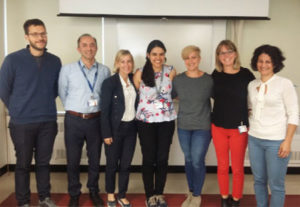
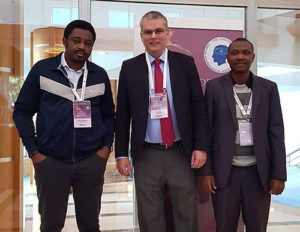 I would like to start by thanking the World Federation of Neurology (WFN) and the Turkish Neurological Society (TNS) for selecting me to visit the neurology department at Ege University in Turkey. It is a highly specialized department where advanced neurology care is given to patients.
I would like to start by thanking the World Federation of Neurology (WFN) and the Turkish Neurological Society (TNS) for selecting me to visit the neurology department at Ege University in Turkey. It is a highly specialized department where advanced neurology care is given to patients.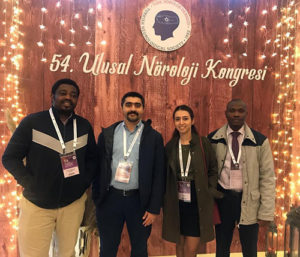 A major part of the program was the 54th National Neurology Congress of TNS, which took place Nov. 30 to Dec. 6, 2018, in Antalya. During that period, I met with and listened to top erudite scholars from TNS as they delivered their research work and lectures. I was particularly fascinated by the highly advanced neurology practice and research in Turkey.
A major part of the program was the 54th National Neurology Congress of TNS, which took place Nov. 30 to Dec. 6, 2018, in Antalya. During that period, I met with and listened to top erudite scholars from TNS as they delivered their research work and lectures. I was particularly fascinated by the highly advanced neurology practice and research in Turkey.

